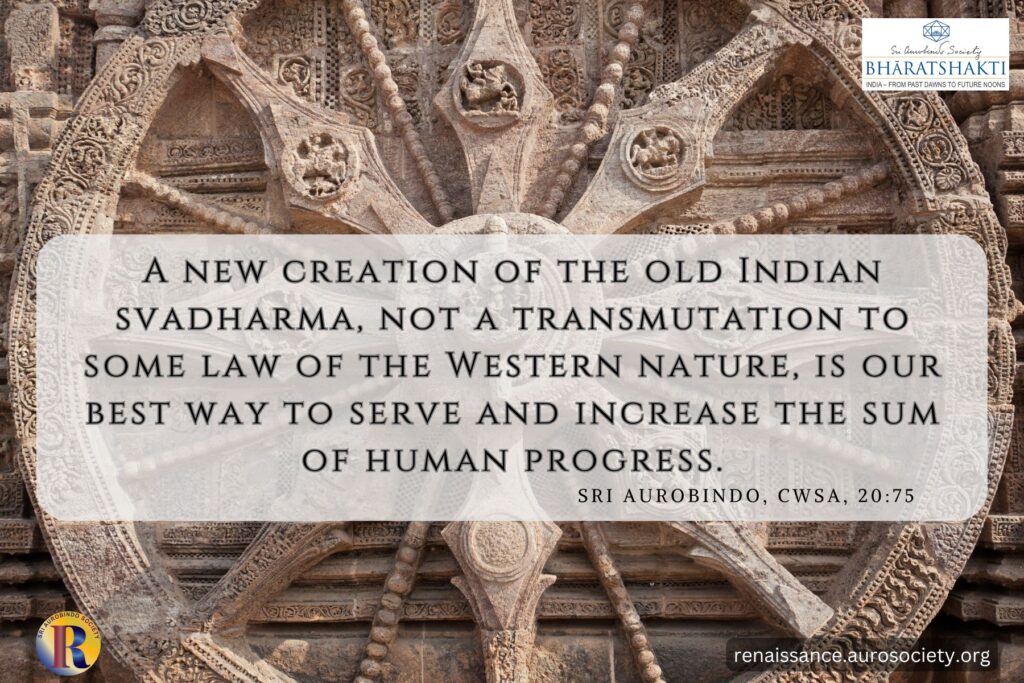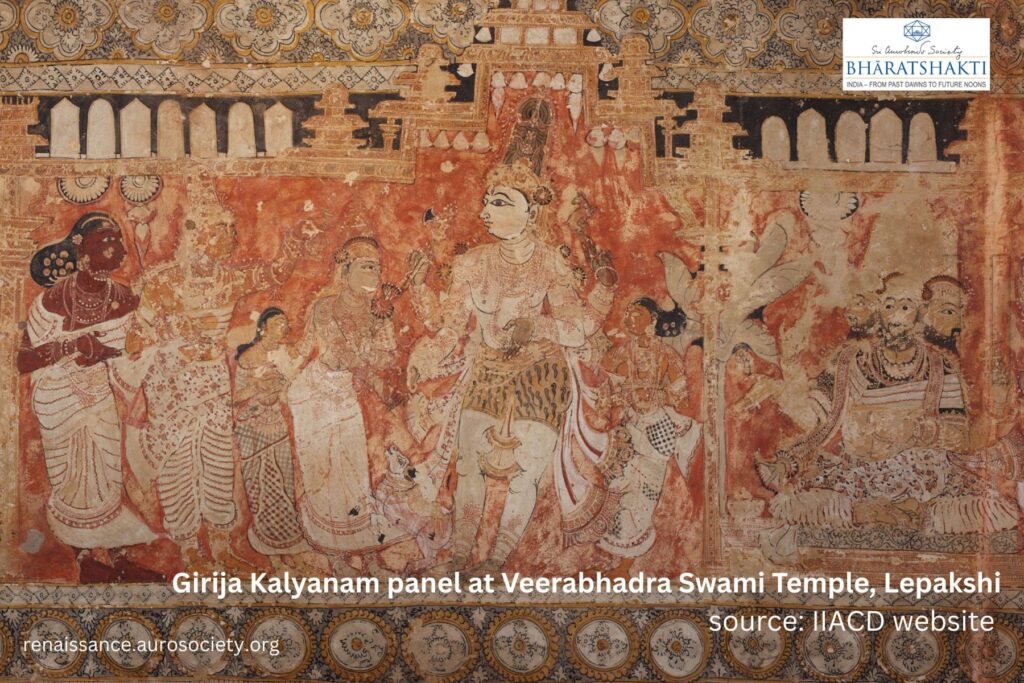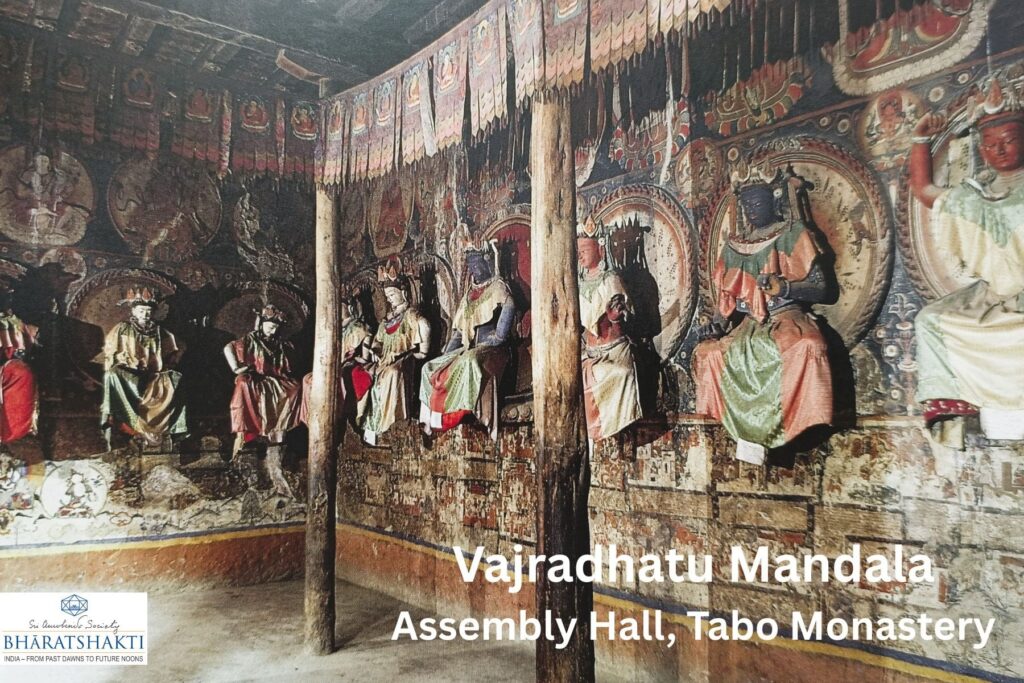Volume 1, Issue 7
Author: Manoj Pavithran
Editor’s Note: “When a memory is made tangible through an architectural symbolism, we are dealing with a defining moment in the life of a community.” An educationist from Auroville writes about a special memory behind a special door at the Matrimandir.
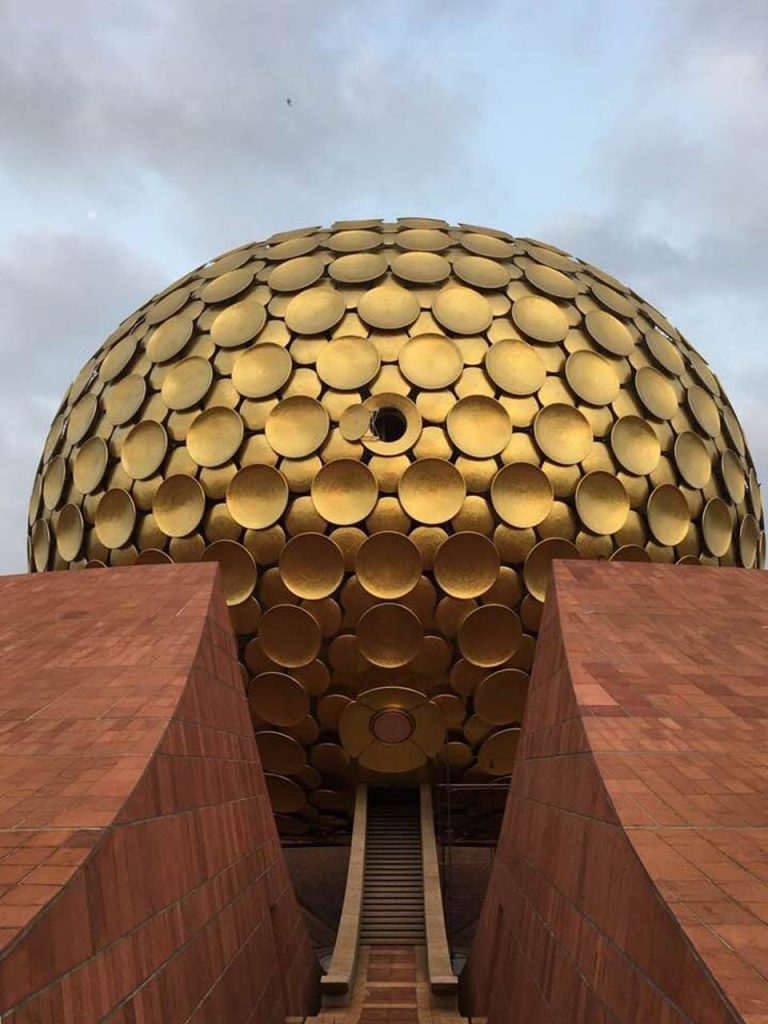
This little door on the eastern side of Matrimandir beholds a sacred memory for all those who love Sri Aurobindo.
Only on the April 4, every year, this door opens during the sunrise for the light to enter the inner chamber horizontally and illumine the crystal soul of Auroville. Every other day of the year the door remains shut and the light will enter from the top; in fact, no one would notice the presence of this tiny door otherwise.
WHY ON THIS DAY
When a memory is made tangible through an architectural symbolism we are dealing with a defining moment in the life of a community.
Every community evolves its own unique culture, and every culture has its mythology narrating the stories of its heroes who are recognised as the embodiment of the very soul of the community. For Auroville, it is Sri Aurobindo and the Mother. So right at the centre of Auroville is the Matrimandir, the shrine of the Divine Mother, and upon Matrimandir is the secret window that would open only on the 4th of April.
There is some history here that we will not find in the history books of India, but Auroville beholds a forgotten memory very much alive in her very soul.
“I can only repeat … that he is the most dangerous man we now have to reckon with.” These were the words of Lord Minto of the British Government in 1910.
The British Government was determined on arresting him again, a young revolutionary, Aurobindo Ghosh, who was setting the nation ablaze with the cry and writings of ‘Bande Mataram‘. The nation was awakening to her Will to freedom and her chief instrument was this lean young man who bore the flame with utter quietude. In him was a seer who saw her rebirth. In him was a fire none could fathom.
In 1907, Rabindranath Tagore had written a poem, Namashkar, in Bengali, dedicated to Sri Aurobindo. The original poem dated August 22, 1907 was first published in Bande Mataram on September 8, 1907:
“Rabindranath, O Aurobindo, bows to thee!
O friend, my country’s friend, O voice incarnate, free, Of India’s soul! “
The British arrested Sri Aurobindo in 1908 and put him in solitary imprisonment for a whole year. He would say about it later – “The only result of the wrath of the British Government was that I found God.” (Tales of Prison Life)
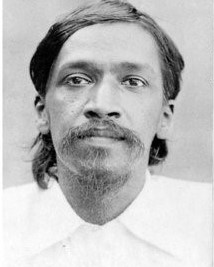

It was in his speech at Uttarpara that Sri Aurobindo for the first time spoke publicly of his Yoga and his spiritual experiences. He said:
When I approached God at that time, I hardly had a living faith in Him. The agnostic was in me, the atheist was in me, the sceptic was in me and I was not absolutely sure that there was a God at all. I did not feel His presence. Yet something drew me to the truth of the Vedas, the truth of the Gita, the truth of the Hindu religion. I felt there must be a mighty truth somewhere in this Yoga, a mighty truth in this religion based on the Vedanta.
So when I turned to the Yoga and resolved to practise it and find out if my idea was right, I did it in this spirit and with this prayer to Him, “If Thou art, then Thou knowest my heart. Thou knowest that I do not ask for Mukti, I do not ask for anything which others ask for. I ask only for strength to uplift this nation, I ask only to be allowed to live and work for this people whom I love and to whom I pray that I may devote my life.
(CWSA, Vol. 8, pp. 9-10)
In the jail I had the Gita and the Upanishads with me, practised the Yoga of the Gita and meditated with the help of the Upanishads.
(CWSA, Vol. 36, p. 98)
He would eventually arrive at a spiritual realization in the jail and receive the message of his life’s work.
When you go forth, speak to your nation always this word, that it is for the Sanatan Dharma that they arise, it is for the world and not for themselves that they arise. I am giving them freedom for the service of the world. When therefore it is said that India shall rise, it is the Sanatan Dharma that shall be great. When it is said that India shall expand and extend herself, it is the Sanatana Dharma that shall expand and extend itself over the world. It is for the Dharma and by the Dharma that India exists.
(CWSA, Vol.8, p. 10)
WATCH:
Sri Aurobindo’s Uttarpara Speech:
Its Timely and Timeless Significance
He learned that his life’s mission went way beyond the freedom of India, he was to grapple with the destiny of humanity. An evolutionary crisis was upon earth that none knew of. Freedom of India was only a small step, there was a greater and more complex work awaiting him. His eyes were set way beyond the horizons of time that would surpass all human comprehension. His very presence bore the stamp of a mighty soul, and the soul of India found in him the most perfect utterance.
After coming out of the jail, in 1909, he started a new publication called ‘Karmayogin’. The illustration on the cover was that of Sri Krishna and Arjuna seated in their chariot on the battlefield of Kurukshetra, and the two mottos on the top were “Remember me and fight” and “Yoga is skill in works”
There was no way the British could arrest him and they were hunting for every possible grain of evidence to catch him, the ‘most dangerous’ man. One day in 1910 he received a secret message from Sister Nivedita, who had many friends in the Government circle that the arrest was imminent.
Extract from A.B. Purani’s notebook:
As usual A.G. came to the Karmayogin office (Routine) & then there was talk about the warrant against him. He remained thoughtful for five minutes — said that he was going to Chandranagore, got up went by tram to some place — then to Ghat, took the boat and went straight to Chandranagore.
He did not think even for a moment about Karmayogin. Papers, articles, politics, party, wife, house — nothing. Simply went away.
(Sri Aurobindo – Archives and Research, Vol. 8, no. 2, p. 201)
Here is another extract from A.B. Purani’s notebook where he gives us another insight, in Sri Aurobindo’s own words.
There were some people there & Ramchandra was there proposing to give a fight to the Police & so many other ideas were flying about when suddenly I heard a voice from above saying “No. Go to Chandranagore.” –
After coming from the jail I used to hear voices & in those days I used to obey them without questioning.”
(Sri Aurobindo – Archives and Research, Vol. 8, no. 2, p. 201)
He gave the responsibility of Karmayogin to Sister Nivedita.
From Chandranagore, he would leave, based on another inner voice, for Pondicherry which was a French colony at that time. A place from where he would never return.
He arrived in Pondicherry on April 4, 1910.


Pondicherry will never be the same again!
There he would begin his greater work concerning the evolutionary destiny of our species. It may take some more generations to comprehend what he did in his solitude.
Tagore came to see him in Pondicherry and write the following:
I felt that the utterance of the ancient Hindu Rishi spoke from him of that equanimity which gives the human soul its freedom of entrance into the All. I said to him, “You have the Word and we are waiting to accept it from you. India will speak through your voice to the world, ‘Hearken to me’.”
(May, 29, 1928)
In her earlier forest home, Sakuntala had her awakenment of life in the restlessness of her youth. In the later hermitage she attained the fulfilment of her life.
Years ago I saw Aurobindo in the atmosphere of his earlier heroic youth and I sang to him,”Aurobindo, accept the salutation from Rabindranath.”
Today I saw him in a deeper atmosphere of a reticent richness of wisdom and again sang to him in silence,
Aurobindo, accept the salutation from Rabindranath.”
The tiny door on Matrimandir that opens on the 4th of April holds a memory, a special one. These are the little secrets that make our life in Auroville meaningful.

